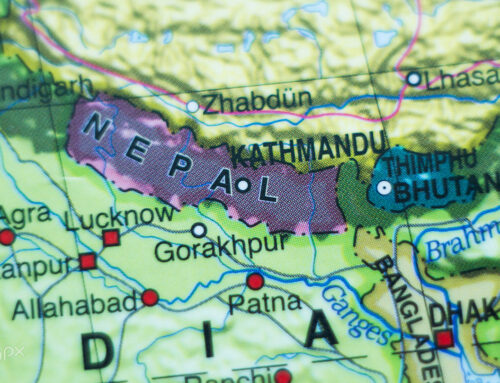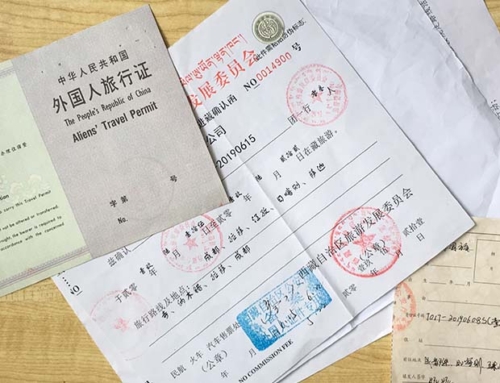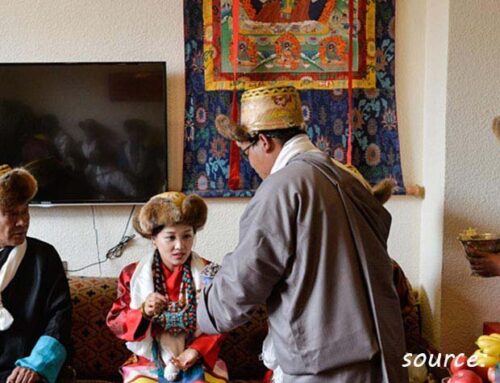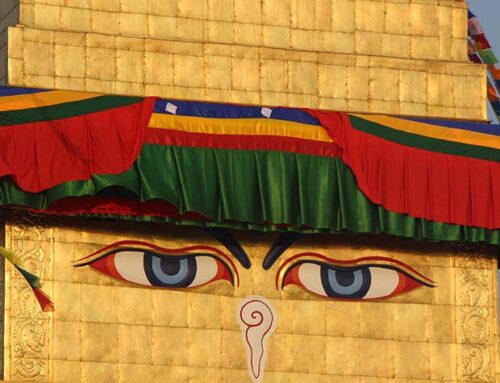Tashi Delek. བཀྲ་ཤིས་བདེ་ལེགས།🙏🏽.Imagine stepping onto the enchanting land of Tibet, a place where ancient traditions and serene landscapes merge to create an otherworldly experience. As you take your first steps, you’ll encounter a phrase that resonates through the mountains, valleys, and hearts of the Tibetan people— “Tashi Delek. བཀྲ་ཤིས་བདེ་ལེགས།” This is no ordinary greeting; it’s a key that unlocks the door to the soul of Tibetan culture.
Beyond the conventional “hello,” Tashi Delek carries a profound sense of warmth, spirituality, and goodwill. It’s an expression that transcends language, a bridge that connects the visitor with the essence of Tibet. In this article, we invite you to embark on a journey of understanding, as we unravel the intricate tapestry of Tashi Delek—unveiling its meaning, tracing its origins, and delving into its role in Tibetan culture and beyond.
Tashi Delek is not just a phrase; it’s a gateway to a world where spirituality and everyday life intertwine. It’s a glimpse into the hopes, dreams, and aspirations of a people whose lives are deeply rooted in their cultural heritage. Join us as we explore the layers of significance hidden within these two simple words and discover how Tashi Delek is more than a greeting; it’s a timeless symbol of connection and goodwill.
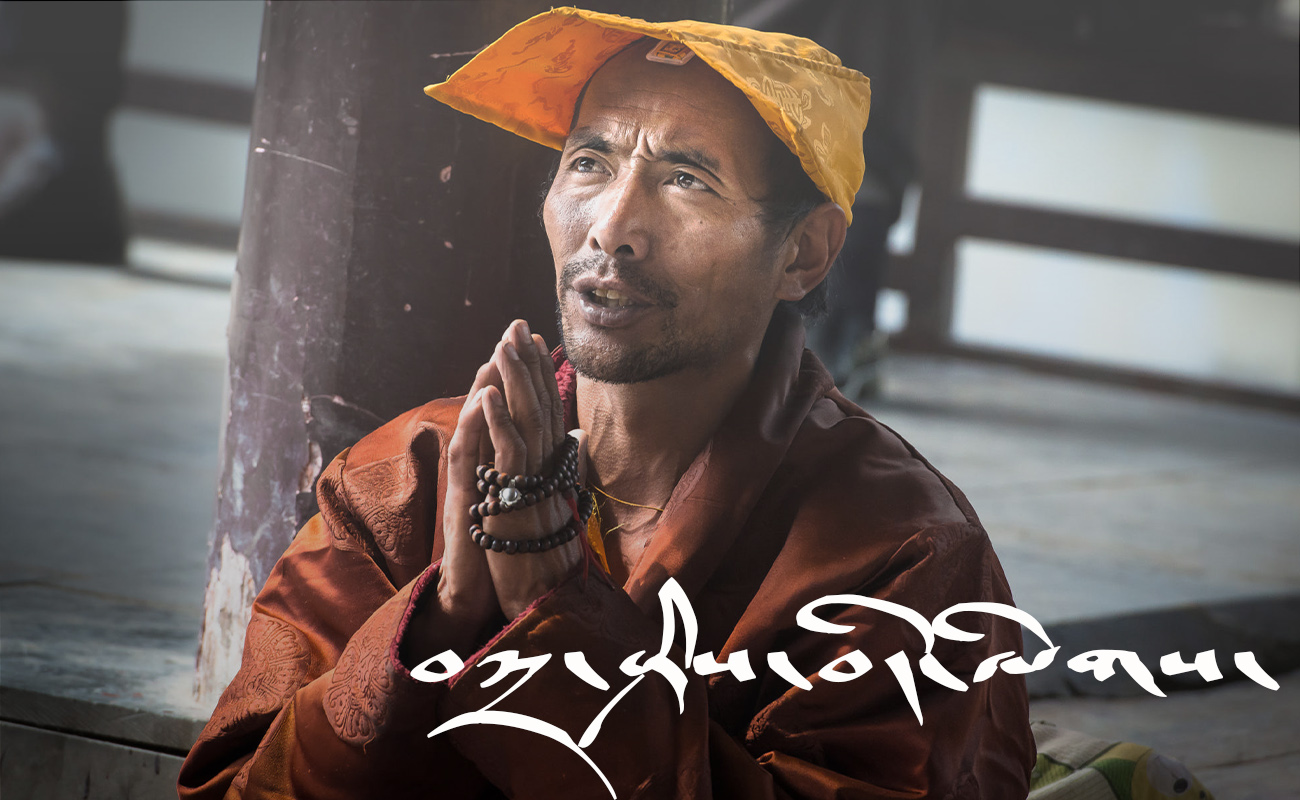
The Meaning of Tashi Delek
Tibet, a land shrouded in mystique and spirituality, welcomes visitors with a phrase that resonates far beyond its borders— "Tashi Delek." To truly appreciate the depth of this greeting, we must delve into its meaning, which unveils a world of auspiciousness, good fortune, and interconnectedness.
Tashi Delek, pronounced as "Tah-shee Day-lek," is more than a mere combination of words; it's a window into the Tibetan psyche. It comprises two significant components, each bearing a unique layer of meaning.
Tashi—the first part of this harmonious phrase—evokes the essence of auspiciousness and good fortune. It's a wish, a whisper of hope, for a life filled with positive outcomes and a future laden with blessings. When you utter Tashi, you are casting a net of goodwill, where every knot carries a wish for the best possible outcomes in life.
Delek, the second part of this greeting, complements Tashi beautifully. It is a call, an invitation for all that is good to come forth and be with you. In its essence, Delek embodies the idea of serenity, peace, and the absence of obstacles. It's a beckoning for life to be harmonious, without disease, war, or disorder. It signifies a state of positive energy, where happiness, joy, and greatness thrive.
Together, Tashi Delek translates to "auspicious blessings" or "may all good things come to you." It's a universal desire for positivity, well-being, and a life marked by auspicious outcomes.
Traditionally, Tashi Delek was closely associated with the Tibetan New Year, a time of renewal and hope. However, in the modern age, this greeting has transcended its seasonal boundaries. Today, it serves as a universal greeting, warmly exchanged between strangers and family members alike.
The beauty of Tashi Delek lies in its ability to convey more than just words. It creates an atmosphere of goodwill, respect, and friendliness. When you hear or use Tashi Delek, you are not merely exchanging pleasantries; you are extending a hand of warmth and a heart full of positivity. It acts as an icebreaker, melting away the initial strangeness and forging connections across the vast expanse of the Tibetan Plateau.
Tashi Delek, in all its simplicity, is a universal language that unites people in the shared aspiration for a life filled with auspicious blessings, good fortune, and an abundance of all things positive.
The Origins of Tashi Delek
To truly grasp the essence of "Tashi Delek," we must embark on a journey through time and trace its roots back to the ancient heart of Tibet. This timeless expression, woven into the fabric of Tibetan culture, carries a profound history that echoes across millennia.
The origins of Tashi Delek can be found in the oldest pages of Tibetan spirituality, dating back approximately 18,000 years. It is within the sacred verses of the Yongzhong Bon, one of Tibet's most ancient Buddhist scriptures, that we encounter the earliest traces of this auspicious phrase.
The story unfurls as Shenrab Miwo Buddha, a revered spiritual figure, embarked on a transformative journey. Born in the Zhuang Zhung Kingdom, he ventured to Tibet Kongpo to impart teachings of great significance. During his time in Tibet, he wove the words "Tashi Delek" into his discourse.
The presence of "Tashi Delek" in the teachings of Shenrab Miwo Buddha signifies its ancient origins and deep connection to Tibetan spirituality. It is more than a mere greeting; it is a bridge to the profound wisdom and spirituality of Tibet's past. This phrase encapsulates the essence of auspicious blessings, as desired by the ancient sages and spiritual leaders.
Throughout the ages, "Tashi Delek" has remained an integral part of Tibetan culture, evolving from a traditional New Year's blessing into a universal greeting that transcends borders. Its rich history serves as a testament to the enduring spirituality and cultural heritage of Tibet, making it a treasure that continues to thrive in the hearts of its people and those who venture to experience the magic of the Tibetan Plateau.
Cultural Significance of Tashi Delek
Within the harmonious syllables of "Tashi Delek," lies a profound cultural significance that illuminates the very soul of Tibet. Far beyond a casual greeting, this expression carries layers of meaning that resonate deeply with the people and the landscape it inhabits.
Tashi Delek is more than just words; it embodies a philosophy of life, one that places great importance on the consequences of our actions. It conveys the belief that our deeds have repercussions, and that by wishing well to others, we sow the seeds of positivity and goodness in our own lives.
At its core, Tashi Delek is a heartfelt wish for harmony, both in the individual and in the community. It signifies a longing for freedom from afflictions—freedom from disease, suffering, and the turmoil that can disrupt the human experience. It is a call for serenity, for a life unburdened by the weight of strife and misfortune.
One of the most profound dimensions of Tashi Delek is its connection to the realization of the true nature of mind. In Tibetan culture, there is a deep appreciation for the journey inward, the exploration of the self, and the quest for enlightenment. Tashi Delek encapsulates the essence of this pursuit, as it symbolizes the longing for a mind free from delusions and ignorance, a mind that recognizes the purity of our existence.
This greeting is a testament to the Tibetan people's dedication to the well-being and prosperity of all sentient beings. It reflects a culture that values kindness, compassion, and the interconnectedness of all life. When one utters Tashi Delek, it is not just a greeting; it is a vow to work for the welfare of all, a commitment to radiate positive energy and goodwill.
As visitors are welcomed with this phrase in Tibet, they are not merely receiving a greeting; they are being invited to partake in the rich tapestry of Tibetan culture, a culture that values harmony, compassion, and the pursuit of spiritual enlightenment. Tashi Delek serves as a beacon, guiding both the visitor and the host toward a shared understanding of the world, where actions have consequences, and the quest for well-being is a shared journey.
Tashi Delek in Tibetan Festivals
While "Tashi Delek" is a universal greeting suitable for everyday interactions in Tibet, its significance deepens during festivals and special occasions. In the midst of these joyous celebrations, Tashi Delek becomes more than a phrase; it transforms into a powerful symbol of unity, harmony, and shared happiness.
Festivals in Tibet are vibrant affairs, filled with colorful processions, sacred rituals, and a palpable sense of community. It is during these festivities that Tashi Delek takes on a central role as an essential blessing, exchanged with genuine warmth among friends, family, and community members.
At its heart, Tashi Delek is a wish for auspiciousness, and during festivals, it is a collective desire for all present to experience a harmonious and blessed time. It signifies the unity of people coming together to celebrate, transcending differences and forging deeper connections.
A beautiful tradition that often accompanies Tashi Delek during festivals is the offering of traditional Tibetan white scarves, known as "khata." These scarves are not mere accessories; they are symbols of respect and good wishes. When a khata is presented along with a heartfelt Tashi Delek, it is a gesture that carries profound meaning.
The act of offering a khata is a symbol of pure intentions and goodwill. It represents a desire for the recipient to be blessed with happiness, prosperity, and all things auspicious. It's a tangible expression of the love and respect shared among friends and family during these special gatherings.
Tashi Delek in festivals transcends spoken words. It is a living testament to the unity and harmony that define Tibetan culture. It is a reminder that in times of celebration, differences are set aside, and a collective wish for happiness and good fortune takes precedence.
As visitors immerse themselves in the vibrant tapestry of Tibetan festivals, they will find that Tashi Delek is not just a greeting but a powerful reminder of the beauty of shared celebrations, the warmth of community, and the profound significance of unity and blessings.
Using Tashi Delek in Everyday Life
In the heart of Tibet, where the spiritual and the everyday intertwine, Tashi Delek becomes an integral part of everyday life. It's a phrase that transcends the ordinary, offering a warm embrace to both locals and visitors alike. In this enchanting land, whether you're greeting a stranger, welcoming guests, or initiating a conversation with a Tibetan, saying "Tashi Delek" is a gesture that goes far beyond mere words—it's a key to fostering goodwill and warmth in your everyday interactions.
Greeting Strangers: Picture yourself wandering through the bustling streets of Lhasa, the capital of Tibet. The air is filled with a sense of mystique, and the people you encounter are not mere passersby. When you greet a stranger with a warm "Tashi Delek," you are doing more than exchanging pleasantries. You are extending a hand of friendship, acknowledging the shared journey of life, and breaking the ice of unfamiliarity. In the land of Tibet, this simple phrase bridges the gap between individuals, making it a universal language of connection and goodwill.
Welcoming Guests: Hospitality is a cherished tradition in Tibetan culture, and "Tashi Delek" plays a central role in welcoming guests. Whether you're a traveler visiting a Tibetan household or a local inviting friends and family into your home, the exchange of Tashi Delek is a heartfelt gesture of respect and warmth. It signifies a genuine desire for your guests to experience a harmonious and blessed stay. It is a way of saying, "You are welcome here, and may your presence bring us all good fortune and happiness."
Initiating Conversations: If you find yourself in Tibet and wish to strike up a conversation with a local, saying "Tashi Delek" is a wonderful way to begin. The moment this phrase leaves your lips, you'll witness a warm smile in response. It serves as an icebreaker, an invitation to engage, and a signal that you come in peace. In Tibet, "Tashi Delek" is the first step toward forging connections, and it sets the tone for interactions filled with goodwill and respect.
Across the vast Tibetan Plateau, people respond warmly to the magic of Tashi Delek. It is a greeting that brings people closer, fostering a sense of friendliness, respect, and warmth. In the midst of everyday life, this phrase acts as a reminder that every interaction is an opportunity to extend a hand of goodwill, to foster connections, and to embrace the beauty of shared humanity. So, whether you're navigating the bustling markets or sipping tea in a cozy Tibetan teahouse, remember that "Tashi Delek" is more than just a greeting; it's an invitation to join in the rich tapestry of Tibetan culture and to experience the warmth and friendliness that define this extraordinary land.
How to Respond to Tashi Delek
The beauty of "Tashi Delek" is that it's a phrase that invites reciprocity. When someone extends this warm greeting to you in Tibet, it's not just a salutation; it's an invitation to join in the circle of goodwill and respect. Responding to "Tashi Delek" is a way of acknowledging the gesture and contributing to the atmosphere of friendliness and warmth.
The Simple Response: If someone offers you a heartfelt "Tashi Delek," you can respond in kind with a simple "Tashi Delek." This response is akin to saying "hello" or "welcome," and it conveys your appreciation for the goodwill extended to you. It's a way of reciprocating the warm sentiments and sharing in the collective desire for auspiciousness and blessings.
Adding a Personal Touch: If you wish to go a step further and add a personal touch to your response, consider using "Tashi Delek Shu." This enhanced response carries an extra layer of warmth and respect. It's a way of saying, "I not only appreciate your kind greeting, but I also extend my heartfelt wishes to you in return." As you say "Tashi Delek Shu," you can accompany it by putting your hands together, a traditional gesture that signifies your respect and appreciation.
In Tibet, these responses are not merely rote reactions; they are sincere expressions of gratitude and goodwill. When you respond to "Tashi Delek," you are not just exchanging words; you are engaging in a shared moment of connection and understanding. It's a beautiful reminder that language can be a bridge, a means of fostering bonds, and a reflection of the warmth that defines Tibetan culture.
So, as you embark on your journey in Tibet and encounter the gracious "Tashi Delek," remember that your response is more than a formality. It's an opportunity to participate in the rich tapestry of Tibetan culture, to embrace the spirit of friendliness, and to acknowledge the goodwill that has been extended to you.
Other Tibetan Greetings and Expressions
Tibetan culture is a treasure trove of rich greetings and expressions, each carrying its own unique depth of well-wishes and blessings. While "Tashi Delek" is a universal and beloved greeting, there are several other phrases that offer even deeper layers of good intentions and express the rich spiritual and cultural tapestry of Tibet.
- Losar Tashi Delek: "Losar" refers to the Tibetan New Year, a momentous occasion filled with cultural festivities and spiritual significance. "Losar Tashi Delek" is the Tibetan way of saying "Happy New Year to you." It encapsulates the joy of a new beginning and carries the wish for a year filled with blessings, prosperity, and good fortune.
- Trung kar la Tashi Delek Pa: This is birthday wishes, birthday in known as Trung Kar and adding Tashi Delek to it makes birthday wishes in Tibetan Language.
- Changsa la Tashi Delek: This greeting is on the Tibetan Marriage. This greeting is express with offering a White kartha.
Each of these expressions goes beyond the surface of daily greetings and delves into the spiritual and cultural depths of Tibetan society. They remind us that every interaction can be a moment of shared positivity and goodwill. When spoken, these phrases carry not only words but also the collective hopes and blessings of a culture deeply rooted in spirituality, kindness, and the interconnectedness of all life.
Tashi Delek Beyond Tibet
The beauty of a heartfelt greeting is that it knows no borders. While "Tashi Delek" finds its roots in the heart of Tibet, its warmth and well-wishes have transcended geographical boundaries. It is a phrase that resonates not only in Tibet but also in regions influenced by Tibetan Buddhism, creating connections that span cultures and communities.
Bhutan: In the enchanting land of Bhutan, where the rhythm of prayer flags flapping in the wind harmonizes with the stunning landscapes, "Tashi Delek" is a familiar and beloved greeting. Bhutan, a neighbor to Tibet, shares not only geographical proximity but also cultural ties. Here, "Tashi Delek" serves as a bridge that connects people, embodying the spirit of goodwill and blessings.
Beyond the immediate neighbors, the global stage has welcomed "Tashi Delek" with open arms. In a world where cultures collide and intermingle, this Tibetan greeting has transcended cultural boundaries. It has become a symbol of warmth and goodwill, recognized and appreciated by individuals from diverse backgrounds.
As Tibetan culture interacts with the global community, "Tashi Delek" has become a beautiful ambassador, carrying with it the essence of Tibetan kindness and the desire for auspiciousness. It serves as a reminder that, despite our differences, we all share the common wish for harmony, happiness, and well-being.
The next time you hear "Tashi Delek" beyond the borders of Tibet, know that it represents not just a greeting but a universal desire for goodwill and blessings. It's a reminder that, in a world that can sometimes feel vast and diverse, there are connections that transcend language and culture—connections woven together by the shared hope for a better, more auspicious world.
Conclusion of Tashi Delek བཀྲ་ཤིས་བདེ་ལེགས།
In Tibet "Tashi Delek" is more than just a greeting—it's a powerful expression of universal goodwill. As we conclude our exploration of this beautiful Tibetan phrase, we are reminded of its profound significance and the warmth it brings to the land of Tibet.
"Tashi Delek" encapsulates the essence of best wishes. It is a heartfelt desire for good luck, prosperity, well-being, and everlasting happiness. Every time this phrase is spoken, it is as if a gentle breeze carries with it the collective hopes of an entire culture—a culture deeply rooted in spirituality, kindness, and the interconnectedness of all life.
This universal greeting transcends time and space. It connects strangers, welcomes guests, and initiates conversations. It is an invitation to join in the rich tapestry of Tibetan culture and to experience the warmth and friendliness that define this extraordinary land.
In conclusion, "Tashi Delek" is not just a phrase; it is a reminder that every interaction is an opportunity to extend a hand of goodwill, to foster connections, and to embrace the beauty of shared humanity. When you travel to Tibet, and you hear or speak "Tashi Delek," know that it is more than a greeting—it's an invitation to become part of the intricate fabric of Tibetan life.
As Tibetan culture interacts with the world, "Tashi Delek" has become a beacon of warmth and goodwill. It is a symbol that reminds us that, despite our differences, we all share the common wish for harmony, happiness, and well-being. So, if you ever find yourself on the roof of the world, embrace "Tashi Delek" as more than a word; embrace it as a heartfelt wish for a world filled with blessings and auspiciousness.
FAQs about Tashi Delek བཀྲ་ཤིས་བདེ་ལེགས།
Is Tashi Delek Only Used in Tibet?
Tashi Delek's enchanting embrace is not confined solely to the mystical land of Tibet. While its origins lie in the heart of the Tibetan Plateau, this warm and sincere greeting has transcended geographical borders, creating connections in regions touched by the gentle influence of Tibetan Buddhism. So, is Tashi Delek only used in Tibet? The answer is a resounding no.
Bhutan: As you wander through the picturesque landscapes of Bhutan, a nation known for its stunning natural beauty and spiritual vibrancy, you'll find "Tashi Delek" as a familiar and cherished greeting. Bhutan shares not only its Himalayan terrain with Tibet but also a deep spiritual connection. The phrase "Tashi Delek" resonates here as a symbol of goodwill and blessings. It unites people, whether they are native Bhutanese or travelers, in a shared appreciation for the beauty of human connection.
Northeast India: In the serene landscapes of Northeast India, where lush forests meet the towering mountains, "Tashi Delek" finds its way into everyday conversations. The influence of Tibetan Buddhism in places like Arunachal Pradesh and Sikkim has made this greeting a part of the local tapestry. It is a reminder of the interconnectedness of these regions with Tibet, as they share not only proximity but also a shared spiritual heritage.
The cultural significance of "Tashi Delek" has transformed it into a universal language of goodwill. It has the remarkable ability to transcend cultural boundaries, fostering connections that extend beyond geography. In a world where cultures intermingle, this Tibetan greeting is a testament to the shared desire for harmony, happiness, and well-being that unites us all.
So, whether you're in the heart of Tibet, the lush landscapes of Bhutan, or the serene valleys of Northeast India, "Tashi Delek" is a reminder that the warmth of human connection knows no bounds. It's a greeting that transcends borders and brings people together, celebrating the common wish for auspiciousness and blessings in the tapestry of life.
What is the Proper Pronunciation of Tashi Delek?
The beauty of language lies in its ability to create connections and bridges between people. "Tashi Delek" is a phrase that not only carries profound meaning but also possesses a unique and melodious pronunciation. To convey its warmth and sincerity accurately, it's important to understand the proper pronunciation.
In the heart of Tibet, where the mountains touch the sky and the winds whisper ancient secrets, "Tashi Delek" is pronounced with a rhythm that reflects the soul of the land. In Tibetan, it is articulated as "Tah-shee Day-lek." Let's break it down to capture its essence:
- Tah-shee: The first part, "Tah-shee," is a gentle yet vibrant rendition. The "Tah" is pronounced with a soft, rolling "T" sound, almost like a breeze rustling through the prayer flags. The "ah" sound is pronounced as you would in the word "car," and it's followed by the melodious "shee," where the "sh" carries the hushed reverence of a temple prayer.
- Day-lek: The second part, "Day-lek," carries a sense of completion and positivity. The "Day" is pronounced with a long "a" sound, similar to the "day" you spend under the sun. The "lek" is a cheerful closure, where the "l" sound is soft and flowing, almost like a gentle stream.
Together, "Tah-shee Day-lek" creates a symphony of sounds that resonates with the spirituality and serenity of Tibet. It's a pronunciation that not only conveys the words but also the intention and warmth behind them.
So, the next time you find yourself in Tibet or in a community influenced by Tibetan culture, remember that pronouncing "Tashi Delek" as "Tah-shee Day-lek" is more than just a way of speaking; it's a way of embracing the rich tapestry of Tibetan life and culture, and connecting with the hearts of the people who call it home.
How Can Travelers Use Tashi Delek in Tibet?
When you embark on a journey to Tibet, you step into a world where spirituality and culture intertwine with the everyday lives of the people. In this enchanting land, where mountains touch the heavens and prayer flags flutter in the breeze, "Tashi Delek" is more than just a phrase—it's a key to open the doors to the hearts of Tibetans. But how can travelers use "Tashi Delek" to connect with the local culture?
"Tashi Delek" as a Universal Greeting: One of the most beautiful aspects of "Tashi Delek" is its versatility. Travelers in Tibet can use this phrase as a greeting for almost all occasions. Whether you're meeting a stranger on the bustling streets of Lhasa or warmly welcoming guests to your lodgings, "Tashi Delek" is your trusty companion. It's a gesture of goodwill that transcends cultural and linguistic barriers, making it an ideal icebreaker for any conversation.
Fostering Friendliness: Tibetans are known for their warm hospitality, and "Tashi Delek" is a way to reciprocate that kindness. When travelers use this phrase, it conveys not only a greeting but also a sense of respect and friendliness. It's as if you're saying, "I come in peace, with good intentions," and the response is often a warm smile and reciprocation of the same blessing. "Tashi Delek" creates an atmosphere of cordiality and bridges the gap between you and the local community.
Respecting Local Traditions: Using "Tashi Delek" isn't just about words; it's a way of honoring local traditions and showing appreciation for the culture you're immersing yourself in. Tibetans greatly value their greetings and rituals, and your use of "Tashi Delek" is a sign of respect for their way of life. It's a small but meaningful gesture that demonstrates your willingness to engage with and understand the community you're visiting.
So, as you traverse the stunning landscapes and sacred sites of Tibet, remember that "Tashi Delek" is more than a greeting—it's a cultural key that opens the doors to the hearts of the people. Use it freely and with sincerity, and you'll find that it fosters not only friendliness but also a deep sense of connection with the remarkable land and people of Tibet.
Are There Any Specific Gestures Associated with Tashi Delek?
In Tibet, words are not the only means of communication; gestures often play a significant role in conveying respect and sincerity. When you hear the warm and sincere greeting of "Tashi Delek," there's a beautiful gesture that accompanies it, adding depth to the interaction.
Putting Your Hands Together: When you respond to "Tashi Delek," it's customary and highly respectful to put your hands together in a prayer-like fashion. This gesture carries a profound significance and reflects your appreciation for the blessing and the person offering it. It's a way of saying, "I receive your goodwill with an open heart."
The act of placing your hands together mirrors the traditional Tibetan gesture of reverence and devotion, a common sight in temples and monasteries. It's a sign of humility and a shared spiritual connection. By adopting this gesture, you acknowledge the cultural customs of Tibet and show that you're open to embracing the local way of life.
This simple yet meaningful gesture is a bridge that connects travelers with the rich tapestry of Tibetan culture. It's a non-verbal expression of gratitude and respect, creating a moment of connection that transcends words.
So, when you hear "Tashi Delek" and respond with your hands together, you're not just engaging in a gesture; you're participating in a beautiful tradition that deepens your connection with the people and the land of Tibet. It's a reminder that travel isn't just about seeing new places; it's about experiencing the heart and soul of a culture.
Can you share more about the cultural context of Tashi Delek
In the heart of Tibet, where the mountains stand as ancient sentinels and prayer flags flutter in the wind, "Tashi Delek" carries with it a cultural context that runs deep into the tapestry of Tibetan life. It's not merely a greeting; it's a profound expression of the values and aspirations of the Tibetan people.
Tashi Delek and Harmony: At its core, "Tashi Delek" signifies a wish for harmony. Tibetans believe in the interconnectedness of all life, and this greeting reflects their desire for a world in which all things exist in balance. It's an expression of hope for a harmonious coexistence of earth, water, fire, and wind, where nature's elements are in perfect equilibrium.
Tashi Delek and Freedom from Afflictions: The phrase also embodies the Tibetan people's wish for freedom from afflictions. In their spiritual journey, Tibetans seek to overcome suffering and find inner peace. "Tashi Delek" conveys their aspiration for a life free from sickness, external disturbances, and the internal turmoil of negative emotions.
Tashi Delek and the True Nature of Mind: Tibetan culture places great emphasis on the realization of the true nature of mind. The phrase represents their dedication to a deeper understanding of consciousness, the recognition of the innate purity of mind, and the transcendence of ordinary mental states.
Tashi Delek and Well-Being for All: Above all, "Tashi Delek" embodies the Tibetan people's unwavering dedication to the well-being of all sentient beings. It's a wish for prosperity, good health, and happiness that extends beyond personal boundaries. It's a reminder that our actions have consequences, and our kindness and compassion can create a better world for everyone.
The cultural context of "Tashi Delek" is a reflection of the Tibetan way of life—a life intertwined with spirituality, compassion, and a deep respect for all living things. When travelers use this greeting, they are not just speaking words; they are engaging with a culture that values harmony, well-being, and the realization of the true nature of mind. It's a cultural exchange that goes beyond language and leaves a lasting impression on the hearts of those who embrace it.


